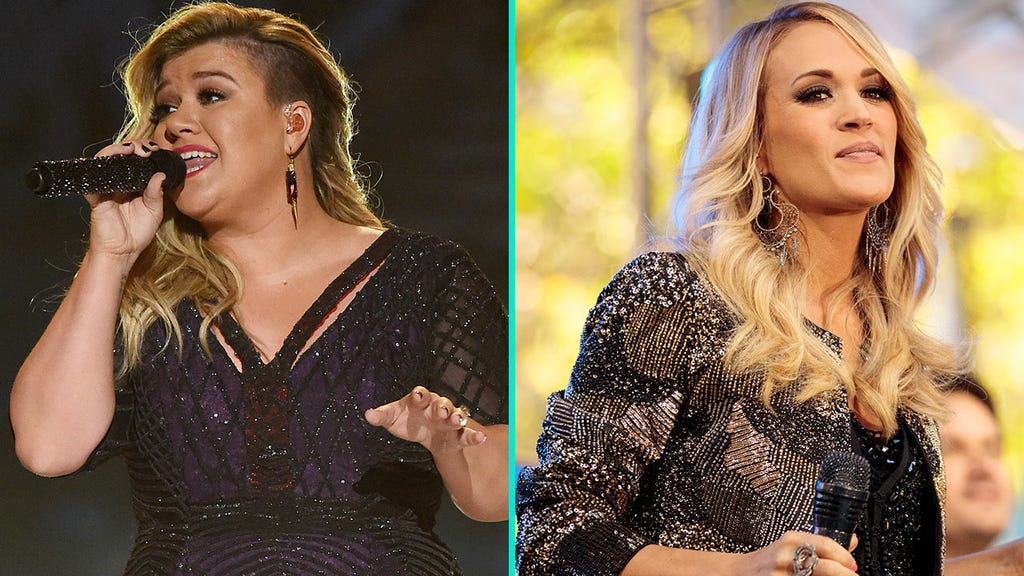You know you're going to miss 'AI' when it's gone.
When American Idol debuted in 2002, it was entering a TV landscape with reality shows that celebrated people who were extraordinary: the competitors on Survivor were tough-as-nails Machiavellian badasses with no fear of grotesque tropical insects, and the round-the-world travelers on The Amazing Race were undeterred by a month of crippling jet lag, taxi drivers with a death wish or, ahem, unfamiliar cuisines.
By comparison, the people that auditioned for American Idol were like us. They could sing -- or they thought they could sing -- and they wanted to prove it to the world. It was less a competition and more about the pursuit of happiness in the purest form, and it was a joy to watch.
WATCH: Kelly Clarkson Calls Her 'American Idol' Performance 'a Perfect Ending'
The show produced two iconic winners -- Kelly Clarkson and Carrie Underwood, who have 10 GRAMMY Awards between them -- and introduced America to a cast of characters that made a profound impact on pop culture. It gave us an admittedly shined-up-for-TV look behind the scenes at talent development; instead of singers plugging away and honing their craft in some anonymous recording studio or soundstage in the Los Angeles hinterlands, we could watch it live on our televisions.
We couldn't have guessed that Jennifer Hudson would go on to win an Oscar from her American Idol performances, but we did know that, damn, that woman could SING. I attended one of the first screenings of Dreamgirls, and there was palpable tension in the theater right before Hudson began to sing the show-stopping 'And I Am Telling You I'm Not Going.' Could she nail this song, with its impossible dynamic range and gut-wrenching emotion?
I wasn't worried. Because I had watched her on American Idol.
PHOTOS: Carrie Underwood Celebrates 10th Anniversary of Her 'American Idol' Win With Flashback Photo
American Idol also heralded the advent of obsessive Internet fandoms -- if you liked one of the singers, the show allowed you to prove it by voting. And vote we did -- phone lines crashed, and I definitely threw a chunky white plastic wireless phone handset across my living room because I got a busy signal and I couldn't register my fifth, eighth, 10th vote for the gifted and hilarious Kelly.
(Kids, ask your parents. This was before you could text for your favorite.)
When audiences fell for a contestant, they fell hard. Clay Aiken believed he had enough of a groundswell of support that he ran for Congress in 2014. Although he lost to incumbent Rep. Renee Ellmers (R-N.C.), there is no other reality show that could have stood in as a legitimate double for a campaign focus group.
MORE: What Do the 'American Idol' Judges Really Think of Ryan Seacrest's Singing?
Both of these elements -- getting a peek behind the scenes at the development of a celebrity and the aggressive courting of fandoms -- obviously made their impact on our pop culture discourse. Idol led to an explosion of franchise reality TV shows: Project Runway, America's Next Top Model, Dancing With the Stars, America's Got Talent, Top Chef...the list is almost indefinite.
But perhaps most importantly, all of this must have made an impact on Ryan Seacrest.
Seacrest has long been one of the hardest working guys in showbiz. He's embraced the weighty mantle of being this generation's next Dick Clark; a one-man TV personality-live event hosting-radio DJ whirlwind. And in 2006, buoyed by almost five years of hosting American Idol, one of the top-rated shows in the country, he launched Ryan Seacrest Productions.
The very next year, Seacrest's production company debuted Keeping Up With the Kardashians and unleashed a cavalcade of K-named beauties with messy personal lives who would soon become famous for their pursuit of fame. It's glam where Idol is homespun, and sexy where Idol is neutered, but KUWTK and its spinoffs contain the most addictive elements of American Idol writ large -- it's a behind-the-scenes peek at the making of a celebrity, and the Kardashian women are textbook perfect in the back-and-forth with their obsessive fanbases.
Most importantly, it makes clear the legacy of Idol. It showed us what we really want to see on reality TV -- people doing their best in the pursuit of happiness.
To look back at the announcement of American Idol's final season, check out the video below:
